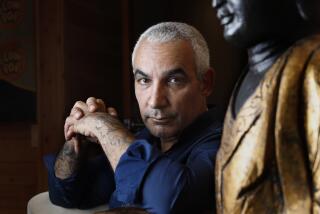Supreme Court sets aside $3.4-million verdict for child-porn victim
- Share via
WASHINGTON — Victims of child pornography whose images of sexual abuse have circulated on the Internet may claim damages from every person caught with illegal images, the Supreme Court ruled Wednesday.
But justices rejected the idea that a single person who possesses such images may be assessed the full amount due to the victim, setting aside a $3.4-million verdict against a Texas man in a favor of a woman whose childhood rape was photographed and widely circulated on the Internet.
The 5-4 decision upholds part of the Violence Against Women Act which calls for restitution to victims of child pornography, but it adopts a middle-ground position on how to set the amount. It said those who possess the images must pay something because they have contributed to the abuse.
“It makes sense to spread the payment among a larger number of offenders in amounts more closely in proportion to their respective causal roles and their own circumstances,” said Justice Anthony Kennedy. “This would serve the twin goals of helping the victim achieve eventual restitution for all of her child pornography losses and impressing upon offenders the fact that child pornography crimes, even simple possession, affect real victims.”
His opinion in Paroline vs. United States leaves it to federal judges to decide on the proper amount in each case.
The case began when a young women using the name “Amy” learned the photos of her sexual abuse as a young child were circulating on the Internet. Her abuser was her uncle who was prosecuted and paid $6,000 in restitution.
Amy went to courts around the country seeking restitution orders from others who had pleaded guilty to child pornography charges for possessing her images. One of them was a Texas man named Doyle Paroline.
A federal judge refused to order Paroline to pay restitution because there was no proof his offense caused or contributed to Amy’s abuse. But a federal appeals court in New Orleans, taking the opposite approach, ruled for Amy and said Paroline was responsible for paying the full amount she had sought, a total of $3.4 million.
The Supreme Court reversed that judgment, but said Paroline can be required to pay a reasonable amount in line with his role in the crime.
Chief Justice John G. Roberts Jr. and Justices Antonin Scalia and Clarence Thomas dissented, saying Congress had failed to make clear how judges should decide on the damages.
Justice Sonia Sotomayor dissented separately, saying the defendant should be assessed the full amount of the required restitution.
Twitter: @davidgsavage
More to Read
Sign up for Essential California
The most important California stories and recommendations in your inbox every morning.
You may occasionally receive promotional content from the Los Angeles Times.











